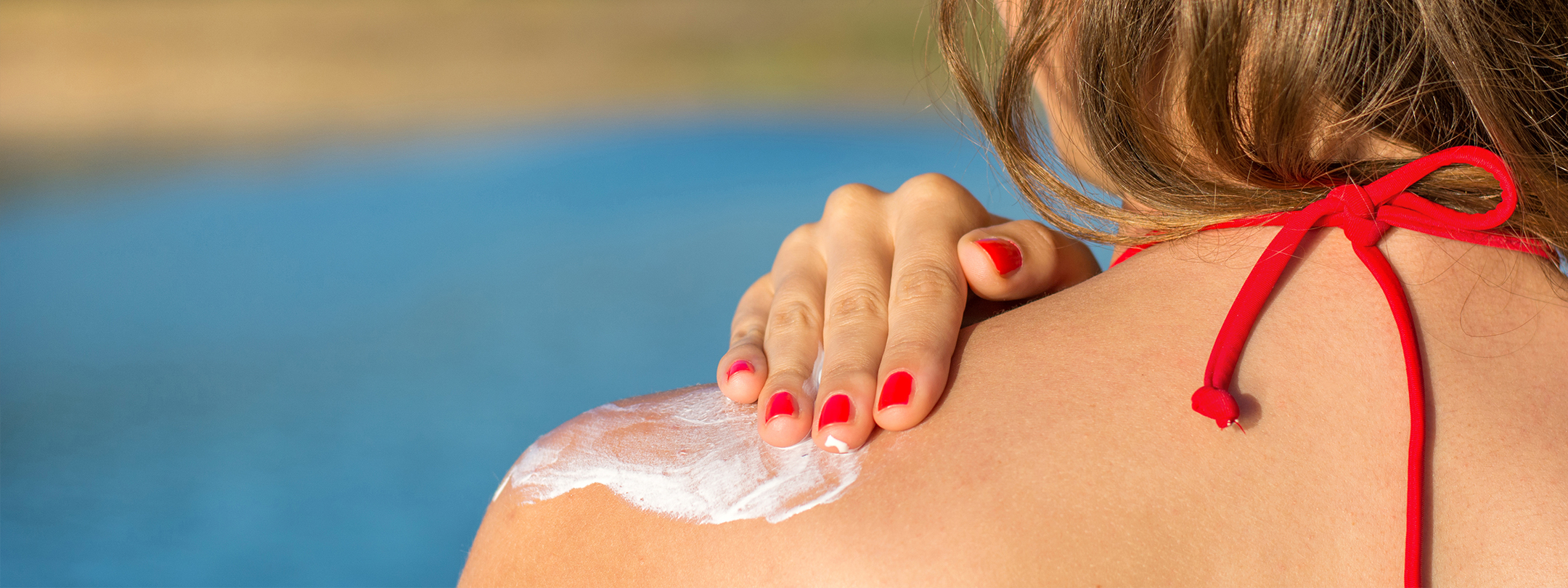While it’s common knowledge that smoking causes cancer, it seems that skin cancer is less commonly discussed. Over 5 million cases of nonmelanoma skin cancers are treated every year, and more people are diagnosed with skin cancer every year than all other cancers combined. That means there’s a very high likelihood of you or someone you know developing skin cancer.
WHAT IS SKIN CANCER?
Skin cancer is the uncontrolled growth of abnormal cells on the outermost layer of skin that can be caused by the sun’s ultraviolet (UV) rays or tanning beds and exposure to harmful chemicals. However, skin cancer can develop in areas that are not exposed to the sun such as in the case with melanoma.
3 TYPES OF SKIN CANCER
There are three different types of skin cancer. It’s helpful to familiarize yourself with the differences among the three:
BASAL CELL CARCINOMA
This cancer is not deadly, but it’s extremely common. While it will not spread to other areas, it can be painful and will usually appear on areas that have been most exposed to sun.
SQUAMOUS CELL CARCINOMA
Unlike basal cell, squamous cell carcinoma can spread to other parts of your body. If caught early, squamous cell carcinoma can be cured.
MELANOMA
This is the most dangerous form of skin cancer, but thankfully it’s also the least common. Melanoma normally looks like an irregularly shaped mole.
SKIN CANCER SIGNS
Knowing the skin cancer signs can help you get diagnosed and treated earlier. Some signs to keep a look out for include:
- Asymmetry: The mole or spot is not the same size or has a unique shape that looks different.
- Border: The border of the moles or spots is irregular.
- Color: The mole’s or spot’s color is inconsistent.
- Diameter: The mole or spot is larger than a pea in size.
- Evolving: The spot has changed over a few weeks or months.
Frequently do a skin self-exam to check your body for any odd moles or spots that may be skin cancer. The American Cancer Society recommends doing a self-exam every month.
TIPS TO PREVENT SKIN CANCER
The good news is that there are ways to prevent skin cancer. Here are the best ways to make sure your skin stays healthy.
1. STAY OUT OF THE SUN
Skin cancer is primarily caused by sun exposure, so staying out of the sun greatly reduces your risk of cancer. Stay in shady areas or stay indoors, especially when the sun is at its strongest (between 10 a.m. and 4 p.m.).
2. WEAR SPF
If you need to be in the sun, use Sun Protection Factor (SPF) products. SPF is a measure of how well a sunscreen can prevent sun damage. Put on at least SPF 30 a half hour before sun exposure to allow the product to soak into your skin.
Once you’re in the sun, reapply every 90 minutes. You can also look for SPF in your beauty products, too; many face lotions and foundations include SPF. However, cosmetic products with SPF should never replace your sunscreen.
3. EXAMINE YOUR SKIN HEAD TO TOE EVERY MONTH
You’re looking for new moles or any other abnormalities in your skin that could be an indication of an overgrowth of cells. Make sure nothing has changed in your skin.
If you’re even slightly suspicious of a mole or a freckle, go to the dermatologist. If a mole you’ve had for a while starts bleeding or growing, go the dermatologist immediately: That’s a strong indicator that the mole is cancerous.
4. COVER UP
Wear UV-blocking sunglasses and a wide-brimmed hat to protect your skin from the sun. Many companies are now offering special sun protective clothing that offers extra protection without the bulk of normal clothing.
5. AVOID TANNING BOOTHS
There’s a reason states place restrictions on indoor tanning beds: They’re dangerous. Embrace the color of skin you have. Or, if you really can’t handle being pale, use sunless tanners or get a spray tan.
Everyone is at risk, but these tips are especially important if you have fair skin. Using SPF, staying out of the sun, and covering up consistently can keep you from developing skin cancer and prevent premature aging and wrinkles.
You can also get your car tinted (a note from your dermatologist may be required in your state) to prevent UV rays from affecting your skin as you drive. Stay safe, stay covered up, and protect your delicate skin.
Related Articles

